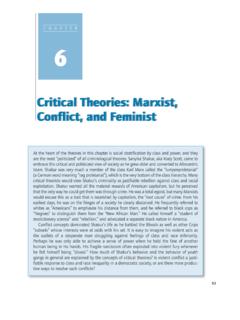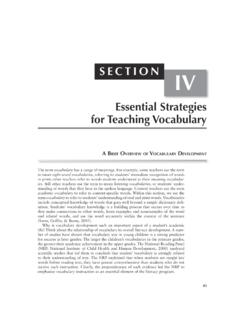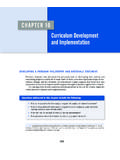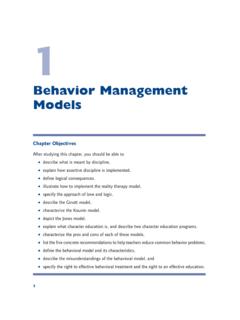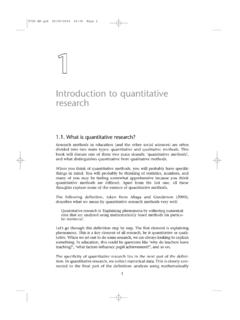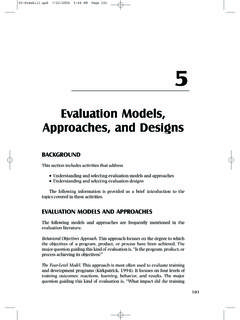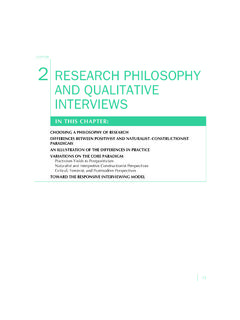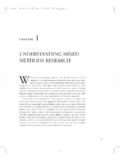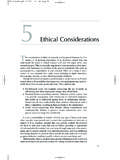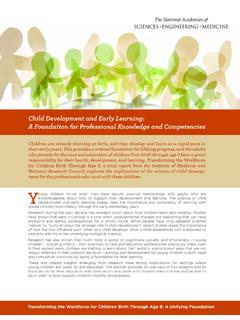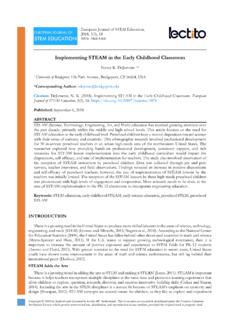Transcription of Theories of Human Development
1 23We know what we are, but know not what we may ShakespeareConsider the above quote by Shakespeare, from the perspective of a person who is unfamiliar with Human Development and the multiple changes of transformation that take place from the moment of birth and long into the future lifespan. Imagine looking at newborn babies bundled in blankets, resting peacefully in their bas-sinets. You may know what is seen but you are unable to know what may observation it is clear that there is difference in size, shape, color tone, level of activity, and even the degree to which hair is present.
2 Some may be quiet with eyes closed, sleeping, while others clearly in stress are red faced and screaming. Again, the observer would know these observations but certainly would be hard pressed to describe what may the process of developing from the joining of two cells to what now appears in a flesh-and-blood bundle in a nursery is in itself quite an amazing, complex, and intricate affair, the complexity or intricacy does not cease at birth. Ask yourself, which of the bundled babies will become a president, a CEO, or a notorious criminal? Which one among those sleeping or crying may fail to thrive or may develop with major physical, intellectual, social, or emotional challenges?
3 Which of this birth class will be tall or short, slim or obese, athletic, academic, artistic, or skilled with his or her hands? Which of those present at that moment will navigate life feeling good about them-selves, accomplishing that which they desire and reflecting at the end on a life fulfilled? These are the questions that the observer may ponder, along with one more. What are the factors, the elements, and the processes that give shape or contribute to that which will become?These above questions were offered as a way to ponder these very same questions that we may have while expanding our knowledge.
4 If we knew what was to be, and what factors gave shape to that future scenario, then we would be better positioned to intervene when danger and blocks were clearly present and supportive to those conditions that facilitated optimal Development . And, while we now know so much more about those very factors, there is much to research, investigate, and noted in Chapter 1, Human Development is complex. It is multidimensional, multidirectional, contextual, and in many ways, quite idiosyncratic to each individual. These characteristics make it difficult to study and chal-lenging to know factually.
5 This chapter introduces the Theories and research methodologies that are leading us to a more complete and accurate understanding of the nature and conditions of Human Development . Specifically, after studying this chapter, the student will be able to2 Theories of Human Development Copyright 2015 by SAGE Publications, Inc. This work may not be reproduced or distributed in any form or by any means without express written permission of the publisher. Do not copy, post, or distribute24 COUNSELING INDIVIDUALS THROUGH THE LIFESPAN 1.
6 Describe the general focus of seven main Theories of Human Development : Maturationist Theory, Psychoanalytic Theory, E. Erikson s Psychosocial Theory, Behaviorism Theory, Biopsychosocial Theory, Cognitive Development Theory, and Ecological System Theory; 2. identify the J. Piagetian Stages of Cognitive Development as they appear at different periods of Development ; 3. describe the psychosocial task experienced at each period of Development as described by E. Erickson; 4. explain the methods of research employed in the pursuit of knowledge and validation of developmental Theories ; and 5.
7 Describe the fundamental ethical concerns and principles that guide research on Human and Theoretical Models of Human DevelopmentThe complexity of Human Development invites the creation of multiple perspectives and Theories , some global and grand in nature addressing principles that apply to every domain of Development , where others are more domain specific ( , focusing on cognitive Development ). Theories provide a framework for the study of Human Development that furthers scientific vision and stimulates the application of science for public policy and social programs.
8 Most importantly, Theories help organize a large body of information and provide ways of examining facts. They also help focus our search for new understandings, explain how findings may be interpreted, and identify major disagreements among scholars (Dacey, Travers, & Fiore, 2009).This chapter will briefly describe the seven major theoretical perspectives or Theories on Human Development : Maturationist Theory, Psychoanalytic Theory, Erikson s Psychosocial Theory, Behaviorism Theory, Biopsychosocial Theory, Cognitive Development Theory, and Ecological System Theory.
9 Like most Theories used in counseling, each can serve as a lens through which to view Human Development and to guide practice decisions. It is useful, as you review each theory, to consider the implication that theory presents for a counselor s intervention and prevention Life adversity, and how an individual copes with it, has an impact on the person s developmental stages and ultimately on quality of life. Copyright 2015 by SAGE Publications, Inc. This work may not be reproduced or distributed in any form or by any means without express written permission of the publisher.
10 Do not copy, post, or distribute25 Chapter 2: Theories of Human DevelopmentMaturationist TheoryGranville Stanley Hall (1844 1924) was a pioneering American psychologist and educator. His interests focused on childhood Development , evolutionary theory, and their applications to education. Hall was a strong believer in the scientific method and its application to the study of Human nature. He supported empirical research in the then emerging area of child Development , developing both Theories of psychological Development and its applica-tion to children s education.
